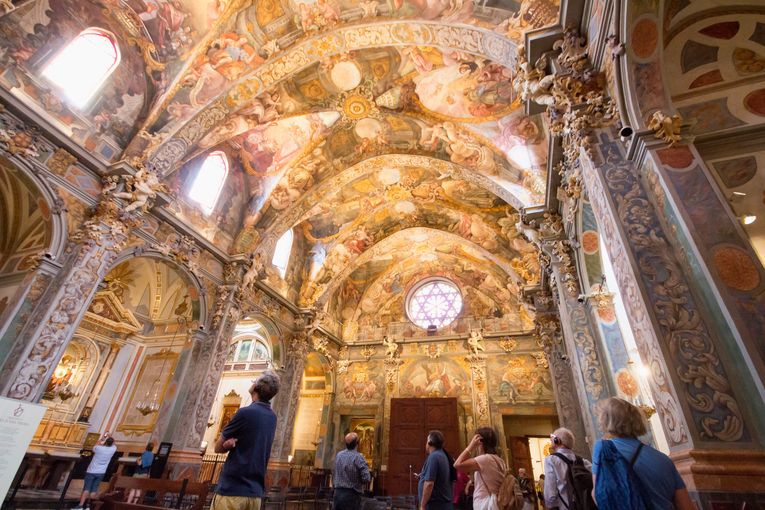If you’re looking for a new meets old way to celebrate Easter traditions , don’t miss Valencia, Spain’s Maritime Holy Week from April 8th to the 17th.
Located on the Iberian Peninsula with immediate access to the Mediterranean Sea, the city embraces the ocean as it has played an important role in traditions over the years. In the past, sailors always relied on religious faith during difficult times. Therefore, when springtime arrives, Valencia’s Maritime Holy Week celebrations offer numerous testimonies of the intimate relationship between religion and those who traveled regularly at sea.

The old fishermen villages have preserved their identity and traditions after being incorporated into the big city and come to life during Easter time with a mixture of devotion and a carnival atmosphere. Below are some of the main celebrations visitors can enjoy:
- Christ on the Beach: On Good Friday (April 7th), Malvarrosa beach transforms into a stunning backdrop for the procession carrying a statue of Christ to the sea. Only a 15-minute drive from the city center, Valencians gravitate towards the white-sand beach to offer their prayers for those who died at sea, throwing wreaths and flowers.
- Good Friday Procession in the City: People dressed as hooded penitents, Roman legionnaires, crusaders, French soldiers and several other biblical characters take the streets to create a colorful and cheerful procession. The city comes together to pray and celebrate every year.
- Fireworks at Midnight: The celebration of the resurrection of Christ kicks off at midnight on Saturday with fireworks. But it’s not the only noise that floods the city as the unique tradition of trencà dels perols also starts at full swing with people throwing old pots and crockery from their windows down into the streets to signify birth and renewal.

- Enjoy the city: In between processions, tourists can immerse themselves into local culture on a terrace or replenish their energy with a paella at Casa Carmella or Casa Montaña. Sweets are a crucial part of enjoying Easter, with a traditional Mona de Pascua (cake with a hard-boiled egg or chocolate egg), panquemao (fluffy sponge cakes with a slightly burn crust), easter sausage, fresh seafood and more.







